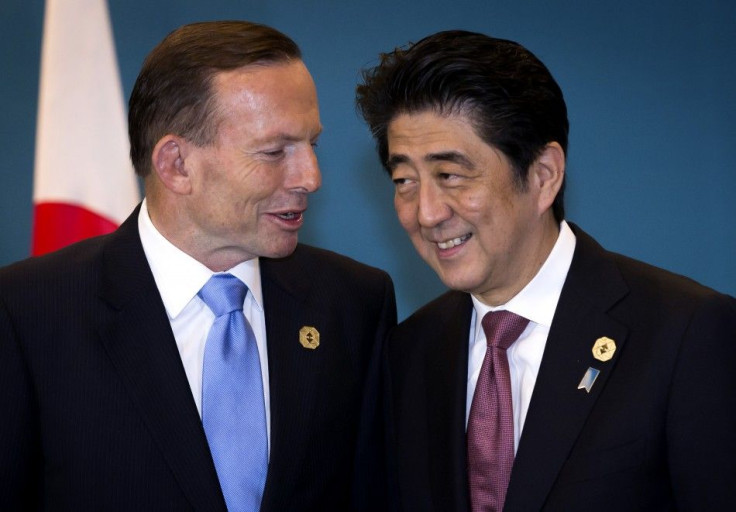Australian PM Tony Abbott Says 'Yes' to Nuclear Energy, Echoes Foreign Minister Julie Bishop’s Arguments

Tony Abbott said that it would be "fine" if a proposal for nuclear energy was put forward. The Australian prime minister said that nuclear technology would be something worth considering.
Mr Abbott's green signal for a nuclear energy proposal came after Foreign Minister Julie Bishop had earlier expressed her willingness to go for nuclear technology. She said that nuclear energy would be an "obvious" way to counter carbon emissions. Now that the prime minister said "yes" to the exploration of nuclear possibilities, one might wonder if Australia is heading for a major advancement. Mr Abbott said that he did not have any theological objection to nuclear energy. He called Fukushima as a "problem," while he referred to Japan as one of the many countries which considered nuclear energy to be a "very important part of the energy mix."
Bishop earlier called nuclear energy as an "obvious conclusion" for cutting greenhouse gas emissions dramatically in case there was a form of low or zero-emissions energy. She referred to nuclear power which was the "only known 24/7 baseload power supply with zero emissions." The Age reported that she had also said that the government was considering new targets for carbon reduction that should be announced during a new global treaty in Paris in December, 2015.
The Australian PM, on the other hand, said that the country would not need to pursue nuclear energy because there were large reserves for gas and coal. Abbott echoed Bishop's arguments to back nuclear advancements by saying that such energy was rather required for reducing carbon pollution,. "If we are to dramatically reduce emissions we have to remember that the one absolutely proven way of generating emissions-free baseload power is through nuclear," ABC News quoted Mr Abbott. He said that nuclear energy had never been an option for Australia as the country, unlike several others, was no short of energy. He said that Australia had reserves for gas and coal for hundreds of years.
Esteemed economists Frank Jotzo and Ross Garnaut appreciated Bishop's arguments and said that nuclear energy could shape the future of Australia's energy. According to The World Nuclear Association, Australia has the largest known uranium resources in the world, 31 percent of the total world share. However, Australia does not have any nuclear power generated at the moment.
Contact the writer: s.mukhopadhyay@ibtimes.com.au





















